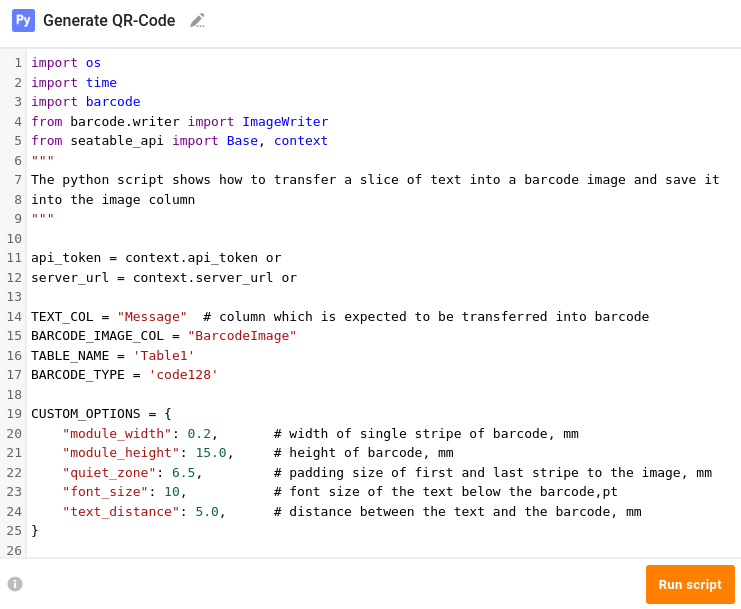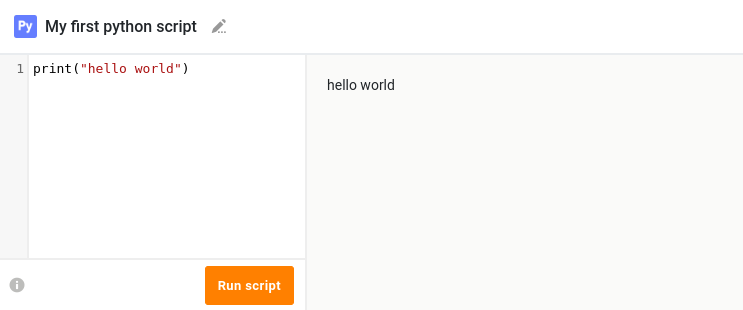Python Pipeline¶
To run Python scripts directly within SeaTable, you need to install the Python Pipeline — an environment utilizing Docker containers for script execution and result retrieval. Thanks to SeaTable's Python API, querying and manipulating data in a SeaTable base is super easy.
Explore various use cases from other SeaTable users:
- Retrieve current stock prices and store them in SeaTable.
- Validate DNS settings of specified domains for specific TXT entries.
- Capture submissions from form.io and store the results.
- Identify duplicate entries and apply specific tags.
Find additional Python functions and code examples in the SeaTable Developer Manual.

Installation¶
This how-to explains the deployment of the Python Pipeline next to your SeaTable Server instance.
Amend the .env file¶
To install the Python Pipeline, append python-pipeline.yml to the COMPOSE_FILE variable within your .env file. This instructs Docker to download the required images for the Python Pipeline.
Simply copy and paste () the following code into your command line:
sed -i "s/COMPOSE_FILE='\(.*\)'/COMPOSE_FILE='\1,python-pipeline.yml'/" /opt/seatable-compose/.env
Avoid space in COMPOSE_FILE
When manually adding python-pipeline.yml to the COMPOSE_FILE variable using your preferred text editor, make sure that you do not enter a space (). After the modification, your COMPOSE_FILE variable should look like this:
COMPOSE_FILE='caddy.yml,seatable-server.yml,python-pipeline.yml'
Generate a shared secret for secure communication¶
For secure communication between SeaTable and the Python Pipeline, a shared secret is required to prevent unauthorized access or usage. We recommend utilizing pwgen to generate a robust and secure password. Copy and paste the following command into your command line to generate a password:
pw=$(pwgen -s 40 1) && echo "Generated shared secret: ${pw}"
The generated shared secret needs to be added to your .env file. Copy and paste the following command:
echo -e "\n# python-pipeline" >> /opt/seatable-compose/.env
echo "PYTHON_SCHEDULER_AUTH_TOKEN=${pw}" >> /opt/seatable-compose/.env
Start the Python Pipeline¶
Now it is time to start the Python Pipeline.
cd /opt/seatable-compose && \
docker compose up -d && \
docker exec -d seatable-server /shared/seatable/scripts/seatable.sh restart
Check the functionality Python Pipeline¶
Do you want to execute your first Python script in SeaTable? Nothing easier than that.
- Login to your SeaTable Server.
- Create a new base and open it.
- Add a Python script with the content
print("Hello World")and execute it. If you don't know how to do this, check out our user manual.
If everything went well, you should see the output Hello World.

Great! Your SeaTable Server instance can now run Python scripts.